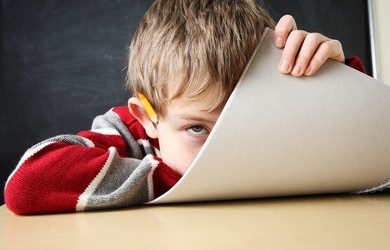
ADHD in Children - Attention Deficit Hyperactivity Disorder in Children
ADHD is common in children and teenagers and, with the right medication and support, can be successfully managed allowing your child to reach their full potential and enjoy their lives.
What is ADHD?
ADHD (Attention Deficit Hyperactivity Disorder) and ADD (Attention Deficit Disorder) are neurodevelopmental conditions affecting thousands of families in the UK. ADHD and ADD are psychiatric disorders characterised by impulsive, hyperactive or inattentive behaviour. The child may appear ‘naughty’, can struggle in school and home settings and be challenging to parent. With the right treatment and support, children and teenagers with ADHD and ADD are much more able to reach their full potential.
Causes of ADHD in children
ADHD in children is thought to result from many genetic and environmental factors interacting.
1. Genetic
Children with a family history of ADHD are much more likely to have the condition themselves. Many children with ADHD have been found to have slightly different gene structures. One study found a greater number of ‘copy number variants’ (a term used to refer to deletions and duplications of certain chromosomes) in children with ADHD.
2. Neurobiological
Brain imaging has shown a difference in the brain size of children with ADHD. Brain maturation is slower in children with ADHD; grey matter maturity is approximately 3 years behind that of children who do not have ADHD.
The levels of neurotransmitters, the chemicals that deliver messages in the brain are different in children with ADHD. Noradrenaline, linked to our ability to pay attention, and dopamine, linked to our ability to control impulses, have been found in lower levels in children with ADHD. Medication can be successfully used to adjust the levels of brain chemicals.
3. Environmental
Premature birth and low birth weights are linked to an increased chance of ADHD. Factors such as alcohol, drug and cigarette use during pregnancy have links to a greater likelihood of ADHD.
Symptoms of ADHD in Children and Teenagers
All children can be fidgety, impulsive and have short attention spans at times and it is perfectly normal. For children with ADHD however these behaviours are more pronounced, occur more frequently, have a bigger impact on their lives and will occur in a variety of settings.
The signs your child may have ADHD or ADD fall into three common areas:
- Hyperactivity
- Impulsivity
- Inattention
Children will experience these signs to varying degrees, and it is common for children and teenagers behaviour to be different or more pronounced in different settings. It is also common for children with ADHD / ADD to experience differing symptoms as they grow up, so as a parent you may notice a shift in the challenges they experience, and this is normal.
A diagnosis of ADHD / ADD requires an impact to be seen in a variety of settings, a thorough assessment should seek feedback from parents, schools and other environments your child spends time in to ascertain this. It is important that parents understand that there can be other reasons why a child might behave in a ‘bouncy’ way or find it really hard to concentrate. These may include ASC or anxiety or mood disorders.
Understanding the reasons behind your child’s behaviour is therefore crucial to getting the right treatment in place and a thorough assessment will look at whether there is another reason that would better explain your child’s behaviours.
Diagnosing ADHD in children
Diagnosing ADHD and ADD in children is often complicated as the symptoms can be indicative of another condition. Finding a clinician with experience of diagnosing ADHD is really important to ensuring your child has the right treatment plan in place.
Your GP or a mental health professional, such as a Psychiatrist is the best place to start for any parent unsure if their child has ADHD. An experienced child and adolescent Psychiatrist will be able to rule a diagnosis in, or out ADHD and make recommendations for further assessments and treatment.
Treatment for ADHD/ADD in Children
Most experts agree the most effective way to treat the core symptoms of ADHD and any associated problems is to use a combination of different approaches which normally include:
- Medication
- Behavioural therapy / psychotherapy
- Parenting support
Frequently Asked Questions
What does an ADHD assessment look like and what can you expect?
Parents and school questionnaires will be sent when appointment is confirmed which you will
need to return at least a week prior to the assessment.
The assessment consists of a structured interview called DIVA (the Diagnostic Interview for
ADHD in Children and Adolescents) based on the DSM V classification.
The diagnosis is based on the information provided by parents, school and the threshold met on the DIVA assessment.
A detailed report based on NICE recommendations with information from parents, school and
assessment with intervention and recommendations for individuals, school, college etc. and
details of websites and books will be provided.
ADHD can be managed with medication as well as other approaches, such as mindfulness,
behavioural strategies and other psychological interventions and support. Medication has to be titrated over a period of time and may need a trial of different medication or doses to manage the ADHD symptoms and will need regular review based on the response to the medication. NICE guidelines recommends medication with behaviour strategies and educational support to have the best outcome.
Digital or CD prescriptions are sent to a private pharmacy called Pharmacierge. The pharmacy
delivers the medication securely to your address, after payment through a payment link on your mobile phone or email. The delivery is within 24hrs if you are within the London area and within 48hrs anywhere else in the UK. After titration, a shared care protocol with your GP will be sent to your GP and yourself.